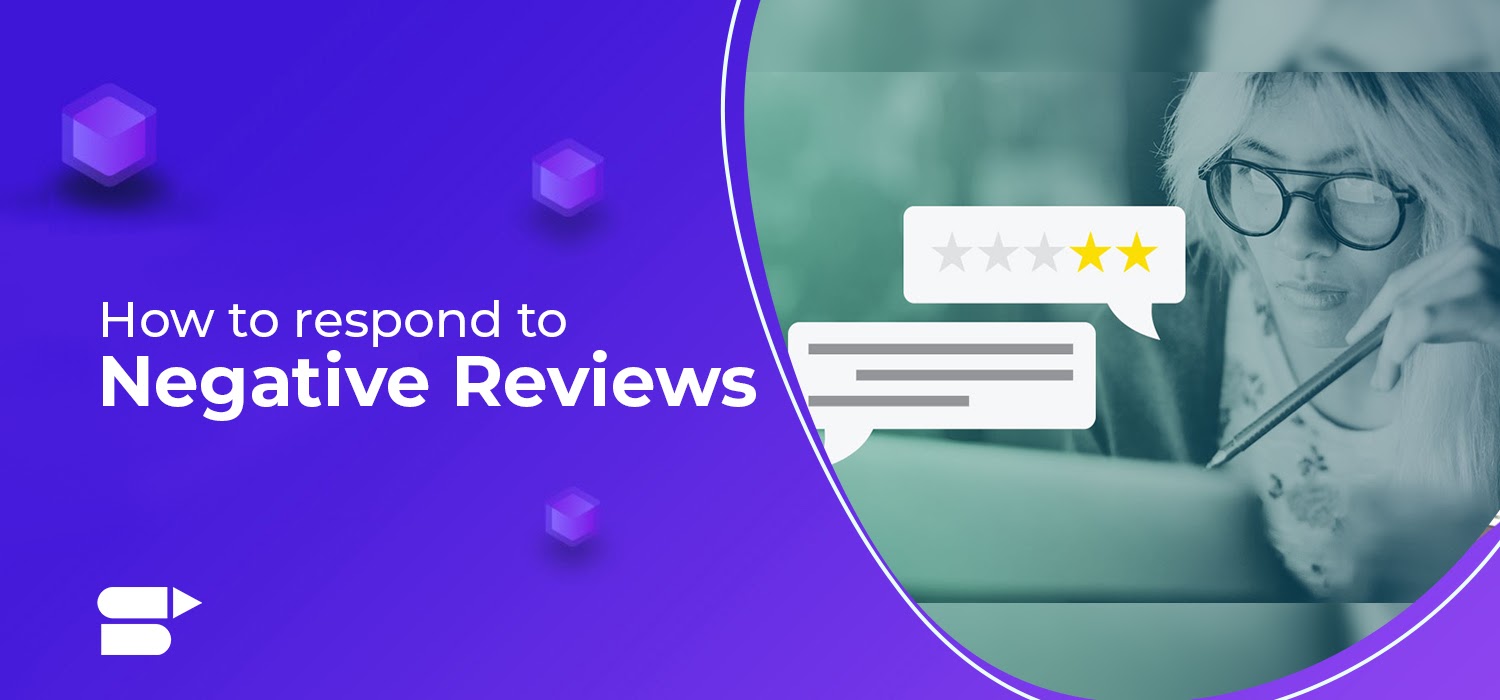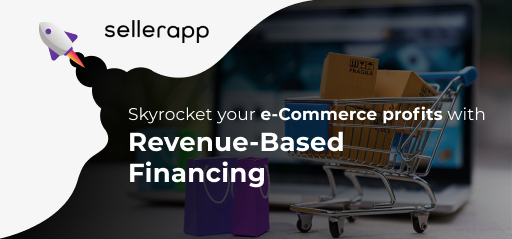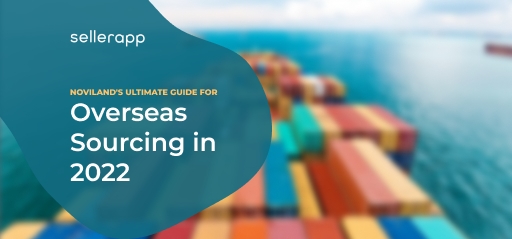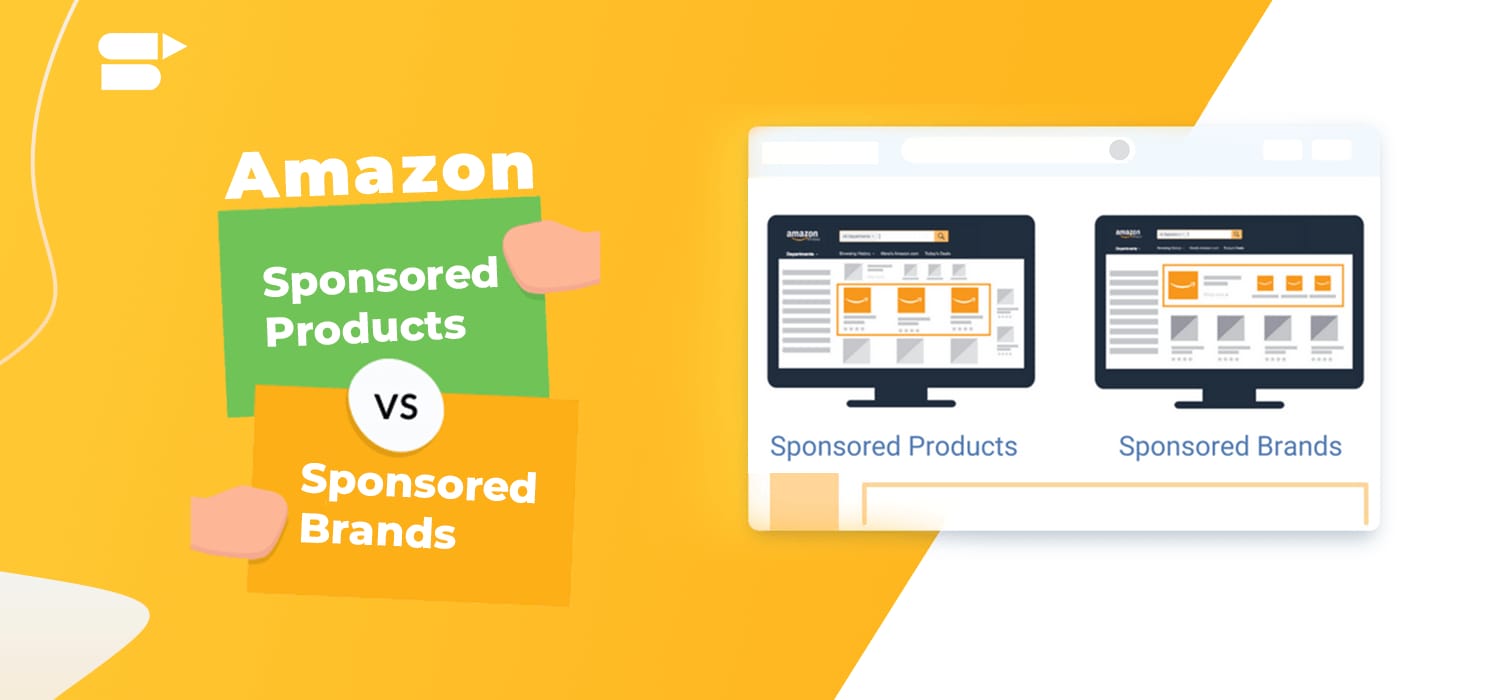Amazon Wholesale Suppliers: The Ultimate Guide

When it comes to running a successful Amazon FBA business, it’s commonly known that selecting the right products is absolutely critical. However, the key to Amazon FBA success lies in finding the perfect Amazon FBA wholesale suppliers who can deliver quality products.
But how do you actually go about choosing the right Amazon FBA supplier for your business? There are several considerations you need to take into account before signing a deal with a supplier.
Keep reading our guide to find out!
Whether you’re jumping into the world of Amazon FBA Wholesale or looking to expand your existing business from Amazon Private Label, Arbitrage, or dropshipping, this guide will help you through the process of researching and selecting the best wholesale suppliers for amazon and set you up for success.
Quick Guide:
- What is an Amazon FBA Supplier?
- Types of suppliers for Amazon sellers
- How do you evaluate Amazon FBA wholesale suppliers to find the right one for your business?
- What to consider when comparing suppliers
- Tips for finding Amazon FBA wholesale products
- Final Thoughts
What is an Amazon FBA Supplier?
Fundamentally, an Amazon FBA Supplier is a business that supplies products to Amazon sellers. These suppliers can be wholesalers, manufacturers, distributors, or even individual brands.
An Amazon FBA supplier will directly ship your product to Amazon’s fulfillment centers where the products are stored, packaged, and shipped to customers.
By working with an Amazon FBA supplier, sellers like you can focus more on critical business practices such as advertising or listing optimization instead of worrying about inventory management, shipping, and customer service, allowing you to scale your business more efficiently and effectively.
Types of suppliers for Amazon sellers
Before you zero in on the type of supplier for your Amazon FBA business, it’s important to understand the different types of suppliers. Each comes with its advantages and disadvantages.
The most popular types of suppliers for Amazon FBA include:
Amazon FBA Wholesale Suppliers
Wholesalers provide sellers with the opportunity to buy a large number of products at a discounted price.
Sourcing your product from this kind of supplier is most profitable for Amazon FBA sellers as you get significant discounts the more you buy in bulk. This can drastically improve your profit margin.
Of course, you don’t necessarily need to be an Amazon Wholesale seller to meet the requirements of a Wholesale supplier.
Wholesale suppliers typically sell products in bulk to various types of businesses, including retailers, online sellers, and even individuals who may not be associated with a specific platform like Amazon.
You fundamentally need to meet the basic requirements such as minimum order quantities and business documentation and you can purchase products from a Wholesale supplier regardless of your selling platform or selling model.
Advantages
- Low cost: Profitability is one of the driving factors for Amazon sellers. Amazon FBA wholesale suppliers offer huge discounts and competitive prices. If you choose to buy in bulk, wholesale suppliers will lower the per-item cost.
This allows you to offer more competitive prices on Amazon. Besides, the majority of the wholesalers are always open to negotiation, so you could bring the price down even further.
- Simplicity: Most importantly, sourcing from wholesale suppliers is extremely straightforward.
Disadvantages
- Initial Cost: Although you may get a good discount, the overall expense is still quite hefty. You’ll require a hefty amount to start sourcing from a wholesaler as you need to purchase more items at once.
- Lack of Flexibility: Ultimately, Wholesalers sell someone else’s products. Therefore, you won’t be able to expect creativity or design flexibility as they have to play by the manufacturer’s rules.
- Reliability: Unfortunately, there are millions of suppliers and not all of them are good. You will have to do your due diligence before partnering with one. You’ll need to find out if they can deliver the product without compromising quality and on time. If you cannot receive the products on time, you will run into a significant loss. Most importantly, the best FBA wholesalers will have the necessary compliance documentation to sell the original brand’s product.
- Inventory Management: While there are financial advantages, you are also ultimately receiving products in bulk, and you will have to sell your inventory without building up the costs. If you’re confident that your product will generate enough sales, then it shouldn’t be a problem. On the other hand, if your product is subjected to seasonality or you’ve hit a lull, then you’ll lose money as the inventory costs keep growing.
You can find the best Amazon FBA wholesale suppliers from Wholesale directories such as Wholesale Central. They are one of the best wholesale suppliers for Amazon FBA in US.

Manufacturers For Amazon FBA
The manufacturer is the one who produces the goods. The manufacturer doesn’t necessarily have to be a brand and can create the same product for several brands. Additionally, they could be a brand and could tie up with Wholesalers as well.
When you purchase directly from the manufacturer or producer, you will have great offers on prices. Sometimes, you may even get better deals than buying from wholesalers. However, you will have to deal with massive minimum order requirements. This essentially means that you would have to shell out more money upfront.
However, sourcing from manufacturers for Amazon fba can be more beneficial for established sellers compared to new sellers. Here are some other Advantages and disadvantages of depending on a manufacturer to supply your products:
Advantages
- Better quality control: Working directly with the manufacturer allows for better quality control, as the seller can ensure that the products meet their specifications and standards.
- Customization: The biggest advantage of working with a manufacturer is that you can ask them to personalize the product according to your specifications needs or branding, adding to your advantage while selling on Amazon. This is extremely important when you’re trying to differentiate from your competitors.
- Exclusivity: Purchasing products directly from manufacturers for Amazon FBA can result in exclusivity, as the seller can ensure that their competitors are not selling the same products. Of course, this isn’t standard practice. However, you do have the option to sign an exclusivity agreement. This can be extremely hard to do with a wholesaler or a distributor as they fundamentally need to sell to several clients.
Disadvantages
- Minimum order quantities: Like wholesalers, manufacturers also have minimum order quantities which can not only be a significant investment for sellers just starting but it could be even more than a wholesalers minimum order quantity.
- Longer lead times: Working directly with a manufacturer can result in longer lead times, as the manufacturing process can take several weeks or even months.
- Communication barriers: Yes, surprisingly, communication can be an issue with manufacturers. Especially, when working with manufacturers in different time zones or with language barriers.
Distributors for Amazon FBA
Distributors are different from wholesalers. While both can be classified as middlemen, it’s important to understand that wholesalers buy in bulk from the manufacturer and then sell to the retailer. Where as distributors act as agents/intermediaries of the manufacturer and facilitate the transaction between the manufacturer and the retailer.
They usually manage logistics, warehousing, and the overall delivery processes and often have exclusive agreements with manufacturers to distribute their products within a particular geographic area or market segment.
Here are some of the advantages and disadvantages of working with a Amazon FBA distributor:
Advantages:
- Established brands: One of the primary advantages of using distributors is that it offers established brands that are already recognized by customers, drastically reducing the need for extensive marketing efforts. More importantly, you can expect a good sales potential for the same reason.
- Efficient logistics and warehousing: Since, distributors tend to manage logistics and warehousing, you don’t need to be worried about streamlining the inventory process as they’ll take care of transporting the product to the FBA warehouse.
Disadvantages:
- Higher Costs: Ultimately, Distributors are like the manufacturer’s very own wholesalers. While you may get a direct connection to the brand, you could also potentially end up spending more than you have to as wholesalers tend to keep their pricing competitive to distributors.
If you’re looking to work with distributors then we recommend you use a platform like Coralport.

Dropship Suppliers
Dropship suppliers are the most popular choice for e-commerce sellers. These suppliers maintain your inventory and send your products to customers.
Advantages
- No inventory: Managing inventory can be daunting if you have a busy and profitable Amazon store. Maintaining your inventory along with the additional effort to track the shipping process can be extensive. The dropshipping model will get rid of this hassle.
- Low overhead costs: You don’t need to pay for bulk products and won’t feel the pressure to empty the inventory. You only pay the supplier as you sell the products. This implies low overhead costs and financial risks.
- Variety: Dropshipping is quite adaptive. You can change your Amazon store to suit your customer demand. Based on customer requests and shopping trends, you can carry products that will reap profits.
Disadvantages
- Less Control: With dropshipping, you give control to the middleman over your shipping process. If the supplier is trustworthy and verified, this shouldn’t be a problem. However, there will be room for mistakes and you have less control over it when compared to handling your own inventory.
- Stock issues: Since the availability of the stock is under the supplier’s control, it might result in out-of-stock.
- Per-item costs: Since dropshipping is convenient and you are not buying in bulk, the per-item costs tend to be higher when compared to other models. Therefore, it is harder for you to offer competitive prices on Amazon and be profitable.
Additional Read: Should You Pick Amazon Dropshipping or FBA (Fulfillment by Amazon) – A Comparison
How do you evaluate Amazon FBA wholesale suppliers to find the right one for your business?
Zeroing in on the right Amazon FBA wholesale suppliers for your business is slightly more complex. Here are some important criteria to evaluate the right Amazon FBA wholesale supplier:
The product sourcing process must be clear
The most important thing is to make sure the entire sourcing process is smooth, clear, and flexible to your timeline.
Most importantly, Amazon product wholesalers must have a clear and responsive communication channel, allowing for efficient and timely exchange of information. Additionally, the ordering process should have clear instructions and minimal steps.
Finally, there should be some level of flexibility as the Amazon FBA business is dynamic and is dependent on several factors. Specifically, the flexibility to translate to the supplier being more accommodating in terms of order quantities and being able to provide from a nascent level to scale.
The delivery time should be consistent and accurate
Proper communication is crucial for a successful business partnership. If the Amazon FBA wholesale suppliers you want to work with has poor communication or takes forever to respond to inquiries, they may not be a good option for you.
Understand their reputation
The reputation of the supplier speaks volumes about them. Always try to find reviews, unbiased testimonials to understand the experience of working with a wholesale supplier for Amazon. We recommend you speak to a current customer if you get the chance.
Make sure they have enough inventory in stock at all times
While your inventory levels are important, your supplier’s inventory levels are super critical. After all, wholesalers may sell a bunch of different products and may not have enough of your specific product in stock.
If they don’t get the product in time and have a stock, you will run into a lull without sales that can not only drastically impact your profit but also result in losing sales momentum on Amazon and impact your presence on the platform.
If you run into this issue or if you find this during your initial due diligence phase, we recommend you find a more reliable supplier.
Read the fine print
Always understand the terms and conditions of the deal. This would include the minimum order quantity, the lead time, shipping related information and much more
Some smaller suppliers will have a minimum order quantity of 100 or they may have a minimum order quantity of $100. Larger suppliers would have a minimum order quantity of 5000 that would set you back approximately $5000 to $7000.
You absolutely must understand their lead time as this will help you plan your overall business. The lead time is essentially the time between the initiation and completion of a production process.
Additionally, understand their shipping terms and timelines. Ask questions like how frequently do they ship, what is the delivery time and how many quantities do they ship each time. Moreover, understand if there’s a separate shipping charge or if the cost of the goods cover the shipping charge.
Cost of goods
Of course, you must understand what is the cost per 1 unit of the product and then find out what kind of discounts they offer when purchased in bulk. Ultimately, always compare suppliers, calculate the product price against your profit margin and only then should you sign the deal.
What to consider when comparing suppliers
When searching for the right Amazon FBA wholesale suppliers, you need to inquire about and compare certain factors among the suppliers. Here’s a list of things you should ask the suppliers.
- Shipping duration of the products
- How do they track the packages
- Shipment mode (what shipping company they use)
- Return policy
- Liability insurance certificate
- What happens if the product doesn’t arrive?
- Standard documents and product certificates if applicable
- References from other sellers who have used their services
Related Post: Decoding Amazon’s Return Policies: Complete Seller Guide
Tips for finding Amazon FBA wholesale products
If you don’t spend enough time honing your product research skills, you will be unable to spot potential winning products. If you are an Amazon seller who is looking to source products from global suppliers, here are a few tips to keep in mind while trying to find the right wholesale products for Amazon FBA business:
Recommended: How to do Profitable Amazon Product Research.
Market research: Perform some market research to find the items that sell considerably well online. Find a product that can solve your customer’s problems. You can use Google Trends to find popular keywords and product trends.
Validate your idea: So you have a product idea. That’s a start. Now, you need to validate if it’s an actual problem that you could solve and build a business out of it. How do you go about it?
- Search through the customer reviews on e-commerce websites
- Look through the seller and consumer forums
- Talk to your friends and relatives
- Use the SellerApp Chrome extension to find the opportunity score, reviews, and average sales of a product. This will help you understand the overall potential of the product.
Understand what your target customers want. This will not only help you create a target audience but will also help you while working on your listing so you can address the customer pain points in your bullet points, product description, etc.
Related Post: How To Write Amazon Bullet Points In A Dynamic Way?
Profit Margin: If you want to run a profitable business, you need to have a good profit margin on your product. Products with decent prices and sales volume will turn out to be more profitable than the others. Try to find products that fall under the $15-$50 range. At this price point, the customer wouldn’t think much about making a purchase decision as long as they know that the product is a good fit. Also, pick a product that has a considerably good sales volume in your niche.
Product demand: Finding a best-selling product with good demand isn’t rocket science. Does your product have year-round demand? It’s an important question to ask before finalizing a product. Try to avoid seasonal products.
You can start brainstorming ideas for the kind of products you want to sell. Try to find top-selling products on Shopify, Amazon best-sellers, public Amazon wish lists, and similar e-commerce sites to find profitable products within a specific niche.
Additional Read: What are the most popular items to sell on Amazon?
Look for the items that have good demand and good competition.
Competition: Any product with low competition and fair demand is perfect to sell on Amazon FBA. So you must ace your product research while finding a perfect product for your Amazon FBA business.
Categories to avoid: If you are planning to sell under a private label, then you need to understand that not all products undergo the same selling process. You need to avoid complex products that have health risks and depreciating shelf-life like food, skincare, health care items, and electronics like cameras, and home appliances.
Avoid huge items that have complications with shipping and manufacturing as they also come with issues involving liabilities, quality assurance, reviews, etc.
Recommended Guide: How to Sell Alibaba Products on Amazon.
Final Thoughts
Amazon has made it easier than ever for the average person to build a successful online e-commerce business, even if they have no previous experience.
In fact, you can immediately reach millions of customers when you sell on Amazon and start generating revenue as soon as possible.
Hopefully, the best Amazon FBA suppliers listed in this guide have pointed you in the right direction when looking for a reliable company to source your inventory.
Before you walk into the Supplier’s office, you should have an understanding of the profit margin of the product. This will help you negotiate effectively with them. Therefore, we recommend using SellerApp’s free FBA calculator tool and SellerApp’s Chrome extension to get an understanding of all the key metrics and numbers that will impact your Amazon FBA business.
Additional Resource:
Should You Pick Amazon Dropshipping or FBA
How Much Could Your FBA Business Be Worth?
How to contact Amazon Seller Support?
Launch an Amazon Wholesale Business in 2024: The Complete Guide











Avery Moore
May 10, 2024Best guide for amazon wholesale suppliers, This week’s topics are so relatable.
Clare Thomas
July 2, 2024Thank you for your feedback. Your input is greatly appreciated.
Riley Carter
May 12, 2024Unique and very useful information, I liked the topics of this week because they are relevant though, Thank you .
Clare Thomas
July 2, 2024Glad you liked the article.
Cameron Rivera
May 15, 2024Great content! today’s blog post is very nice. Wish to see much more like this. Thanks for sharing your information.
Clare Thomas
July 2, 2024We value your feedback. It’s crucial for our growth and improvement.
Matthew Lee
May 17, 2024Amazing post update, thanks for sharing this article. I am truly motivated by you for blogging.
Thank You
Clare Thomas
July 2, 2024You are most welcome.
Mason Jones
May 23, 2024Thanks for sharing such a helpful article. This week’s blog is spot-on!
Clare Thomas
September 16, 2024you are welcome.
Ava Wilson
May 26, 2024Nice blog, I’ve been waiting for this month’s update!
Clare Thomas
July 2, 2024Happy to hear that you liked updated content.
Aiden Martinez
May 27, 2024Today’s blog really inspired me with real time insights, Great post!
Clare Thomas
July 2, 2024Thank you!
Jackson Mitchell
June 2, 2024Very practical tips.
Clare Thomas
September 16, 2024Glad it helped you.